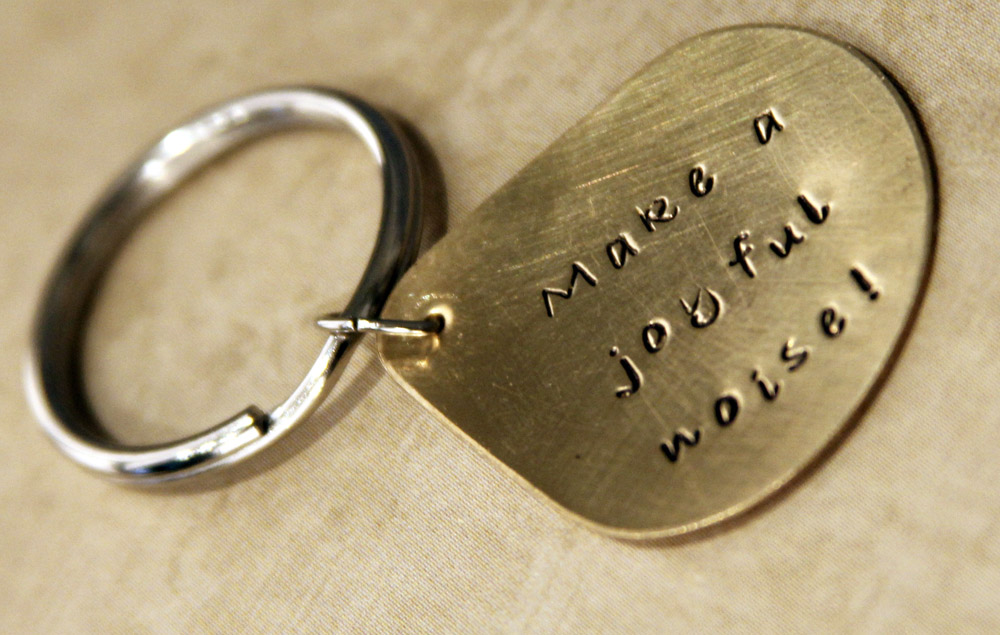First Parish Church of Groton
Karen G. Johnston, Ministerial Intern
(audio version can be found here)
Let’s do a short visualization exercise. That means when I say a word, you bring to mind an image or a word or phrase, perhaps even a sound or a sensation, that represents that word. Ready, set, go:
 Now, as you are willing, shout out what joy means for you. [the congregation speaks] Listen!
Now, as you are willing, shout out what joy means for you. [the congregation speaks] Listen!
 Now, let me ask you. How many of you thought of an airport?
Now, let me ask you. How many of you thought of an airport?
I am not surprised to hear/see that so few/none of you had that particular image come to mind. Airports can be the location of joyful reunions:
- lovers in long-distance relationship reunited
- Peace Corps volunteers returning
- deployed military personnel coming home
Still, I think airports are more often associated with less-than-joyful experiences:
- delays and unexpected layovers;
- less-than-satisfying food options;
- impatient or rude fellow travelers;
- invasive search protocols, and
- if you were traveling through Midway airport in Chicago the Sunday after Thanksgiving, people waiting in lines 1.2 miles long.
Yes, miles.
In just a few weeks, I will find myself in a series of airports on my way to Burma – starting off at Logan, then to Atlanta, then to Seoul, South Korea and finally landing in Yangon, the capitol city of that nation also known as Myanmar.
The past few years have seen me flying often between this coast and the one I grew up on, the one where my mother still resides and where she ages in place. So not unlike the Mary Oliver poem read earlier, I have developed a way of saving myself in airports. It’s a simple multi-step process.
- The first step is to identify a young child. Extra points for one that is about to melt down.
- Second: Smile at the child. Then smile at the parent. That second part – smiling at the parent — is key, otherwise it’s creepy.
- Next: play peek-a-boo. Or make silly faces. Or blow bubbles.
- Then – and one must plan ahead for this step – remove from your own bag the reliable, colorful plastic toy kept there solely for this purpose. Deftly hiding it from the child’s view, ask the parent if it’s okay to offer this to the child. Hint: it need not be a toy. A sticker works well, too.
- Let the child hold the toy or have the sticker.
- Finally, the last step: experience joy. Take delight, for it is there for the taking.
I know it makes the child happy and typically, the parent is thankful for any momentary respite in what is an otherwise stressful undertaking, and yet it brings layers and layers of joy to me.
There’s another joyful airport story I want to share with you. It comes to us from Naomi Shihab Nye, who is a Palestinian-American poet. In the story, the Naomi encounters a wailing woman, dressed in Old World clothes, at the gate where their shared flight has just been delayed. The flight attendant who is working the desk does not know why the woman is being so, well, troublesome.
“What is her problem?” and then, “Please help.”
Naomi speaks to the old woman in halting Arabic. And now the story continues in the author’s own voice:
The minute she heard any words she knew, however poorly used, she stopped crying. She thought the flight had been cancelled entirely. She needed to be in El Paso for major medical treatment the next day. I said, “You’re fine, you’ll get there, who is picking you up? Let’s call him.”
We called her son and I spoke with him in English. I told him I would stay with his mother till we got on the plane and would ride next to her – [we were flying] Southwest. She talked to him. Then we called her other sons just for fun. Then we called my dad and he and she spoke for a while in Arabic and found out of course they had ten shared friends.
Then I thought just for the heck of it why not call some Palestinian poets I know and let them chat with her? This all took up about two hours. She was laughing a lot by then. Telling about her life, patting my knee, answering questions.
 As the story continues, the woman pulls out of her bag mamool cookies – traditional for the part of the world which she calls home. They are made of dates, nuts, and powdered sugar. She offers them widely. Again, we return to the story, to the poet’s amazement:
As the story continues, the woman pulls out of her bag mamool cookies – traditional for the part of the world which she calls home. They are made of dates, nuts, and powdered sugar. She offers them widely. Again, we return to the story, to the poet’s amazement:
… not a single woman declined one. It was like a sacrament. The traveler from Argentina, the mom from California, the lovely woman from Laredo – we were all covered with the same powdered sugar. And smiling. There is no better cookie. And then the airline broke out the free beverages from huge coolers and two little girls from our flight ran around serving us all apple juice and they were covered with powdered sugar too.
Holding hands with the old woman, at this point, the Naomi reflects
…I looked around that gate of late and weary ones and thought, this is the world I want to live in. The shared world. Not a single person in this gate – once the crying of confusion stopped – seemed apprehensive about any other person. …. This can still happen anywhere. Not everything is lost.
This is the world I want to live in. The shared world.
Joy was not initially apparent. Apprehension. Distrust. Confusion. Those were there. Then, with the entrance of an open curiosity, and an authentic attempt to understand the distress, after which came sharing and eventually: joy.
This can still happen anywhere. Not everything is lost.
Last month, in one of my classes, we had guest speakers. A minister from Newtown, Connecticut, the second anniversary of whose tragedy we mark today. The other was the minister at Old South Church, which stands next to the finish line of the Boston marathon. She had been in the church tower when the bombs went off.
Each spent about an hour sharing their experience of ministering in the continuing wake of these two acts of violence. Rev. Matt Crebbin spoke of how in Newtown, where they don’t much like the term, “healing” but speak of “continuing the journey.”
Rev. Nancy Taylor spoke of attending to the widening circles of suffering, starting with those who lost life and limb in the bombing and their families; then to the first responders; next to the business folk in the 8-block cordoned off area whose livelihood was stopped for over a week during the investigation of the crime scene; and last but not least, to the many homeless people who would typically spend their days in that same restricted area, and who were now both traumatized and dispersed. She spoke of area clergy going out to check in on these most vulnerable to make sure they were not lost or losing it.
This can still happen anywhere. Not everyone need be lost.
Right about now, some of you are likely wondering how it is that during a worship service about joy, I am raising these tragic events, two among too many in our nation’s recent history. Surely, there is no joy to be found amidst this wreckage.
It is not joy here I raise, but comfort. Each minister shared their perspective on what helped them to help their communities, hoping that their experience and the lessons they learned might help thirty wannabe ministers and chaplains to be able to do the same should, god forbid, we find ourselves in similar stead.
Both tragedies were quite different from each other: different causes, different communities, different impacts. Yet both ministers said that their interfaith connections served them well in the aftermath of the traumas. It was interfaith relationships that helped them provide comfort, as well as to receive it themselves.
This is the world I want to live in. The shared world.
I won’t, but if I had asked you to do that visualization exercise again, this time with the word, “comfort,” I’m not so sure that any of you here would bring to mind interfaith engagement. Even for me, who spent the first half of my seminary studies at a school with thirty percent of its student body Muslim, it would not be the first thing that comes to mind either.
Yes, at first, there is authentic curiosity and a desire to learn about someone or something so different than oneself. Then, a particular dis-comfort is likely:
What if I say something wrong?
What if they say something that goes against something I hold dear?
What if they act like there is no room for LGBTQ people in their faith?
What if my perception of how women are treated in their tradition is offensive to me?
What if the only images in my head or in the media are ones that suggest narrow-mindedness, or worse, violence?
What if their images of me, of us, is as sinner, as heretic, as not being a child of God?
Just for a moment, I’d like to ask you think about the difference between joy and happiness. It’s important the two should not be confused one for the other. Happiness is context-dependent, is based on external circumstances. Clever clergy like to say that happiness equals happenstance.
Joy, on the other hand, is abiding. For some, Joy is a gift of the Divine, a sign of grace or mercy. For others, it is another name for our innate Buddha Nature, something each and every one of us has. It is, as our Story for All Generations suggests, our innate heritage, our original blessing.
Think of the story of the wailing woman at Gate A-4: all the apprehension and discomfort upfront, then joy, then connection: the shared world. Abiding joy and comfort can come after moving through discomfort.
This can still happen anywhere. Not everything is lost.
Comfort, like when I attended Friday afternoon Jum’aa prayers at the mosque where my friend was the imam. The head covering I had so carefully put in place had begun to slip, I was worried that I might appear disrespectful, so I was fiddling with it, trying to set it just right. My friend’s wife, Nihal, and some of her friends, kind strangers to me, came up and tenderly, they began to set the scarf better, so that I might be comfortable there. It was a tender and intimate moment, the likes of which I rarely get to share in a house of worship, even my own. It is precious comfort to me.
This can still happen anywhere. Not everything is lost.
We are blessed that part of the ministry that First Parish deems important is participation on the Groton Interfaith Council, of which I have the joy to serve during my internship. This is worthy work. The need for interfaith connections is urgent given the state of the world, yet I know this is not the only way we create the Shared World.
When Brenna lit the chalice on the Sunday before Thanksgiving in honor of Groton Community Dinners and your efforts to make those happen, she said
Working side by side to cook, serve, and clean up forges bonds of community that only get stronger with time. Sharing the good company of a neighbor or fellow citizen over a meal helps us appreciate the value of kindness and respect in our dealings with one another. Feeding people who need food, comfort, companionship, or just some time off helps us all become a closer community.
When we cross divides, when we sit with strangers, we can choose to discover our commonalities, our shared values, our shared community, our shared future: This is the world I want to live in. The shared world.
Worship this morning started with these words from UU minister Kathleen McTigue:
We do not seek a unity that would deny our differences.
We seek rather a deeper union,
A union woven through choice and intent,
Through time and attention,
Through respect and compassion,
Until we recognize that we have become a whole cloth,
A cloth made rich and textured and vibrant
Through our differences.
Each of us can hear, in the beating of our own hearts,
The ancient rhythm of the loom at work.
We are woven together.
We are bound to one another.
We belong to and with each other.
We need to create that shared world, that woven world. Through interfaith relationships, through community dinners, through connections with other houses of worship, through coming to the aid of someone wailing at the top of her lungs (in airport terminals, when their beloved is senselessly killed).
We can’t wait on someone else to create this shared world. We can’t wait til we have what we think is the full story, or all the right knowledge to avoid accidental offense — theirs or ours. It will never happen if we live in the “city called Wait.”
It is up to us here. It is up to us now.
This is the world I want to live in.
The shared world.
This can still happen anywhere.
Not everything is lost.
References:
McTigue, Kathleen. “We Are Woven Together,” from For Praying Out Loud: Interfaith Prayers for Public Occasions, edited by L. Annie Foerster, Skinner House, 2003
Nye, Naomi Shihab. “Gate A-4,” Honeybee, Harper Collins, 2008.
Oliver, Mary. “Logan International,” Thirst, Beacon Press, 2006.